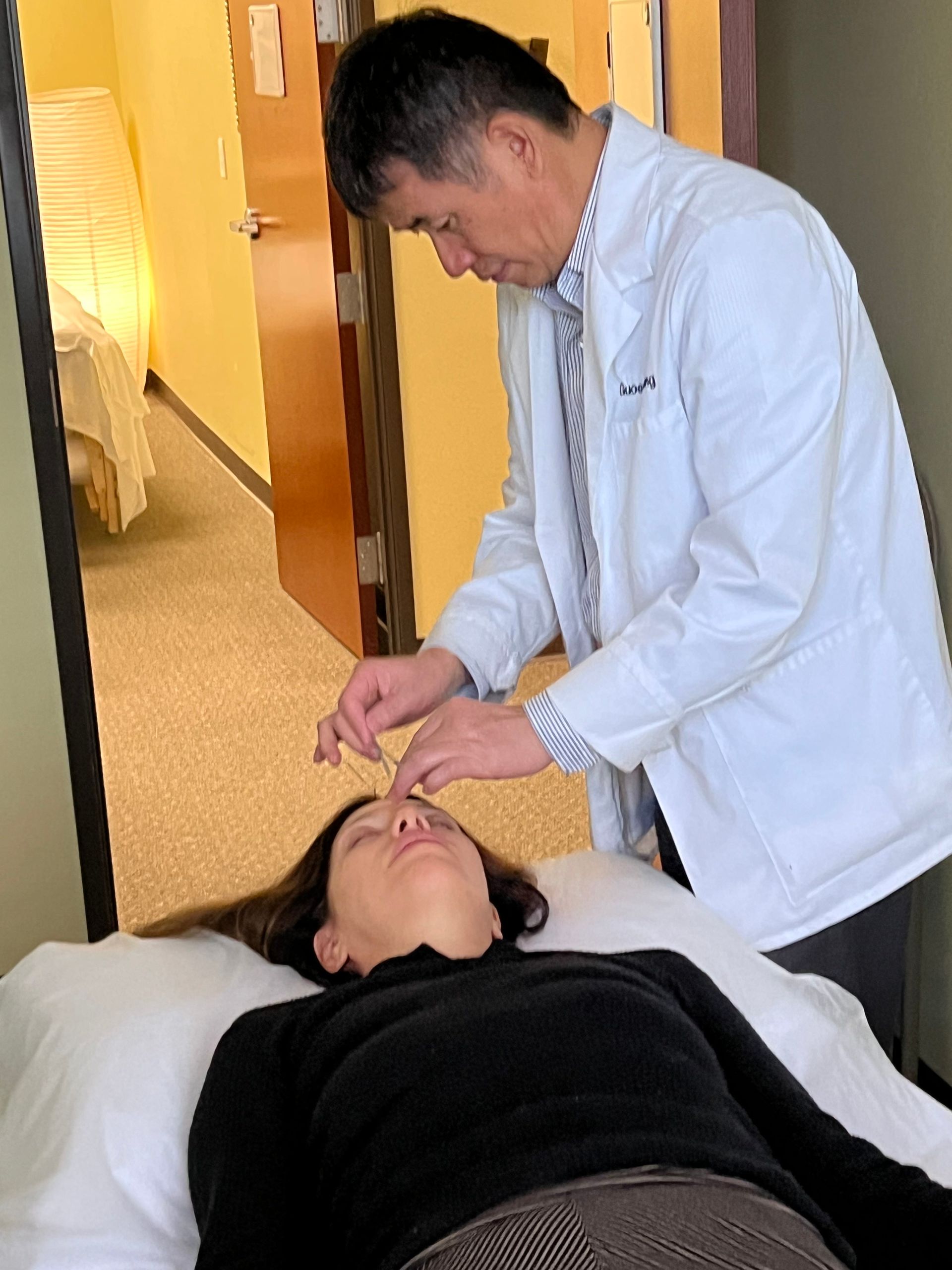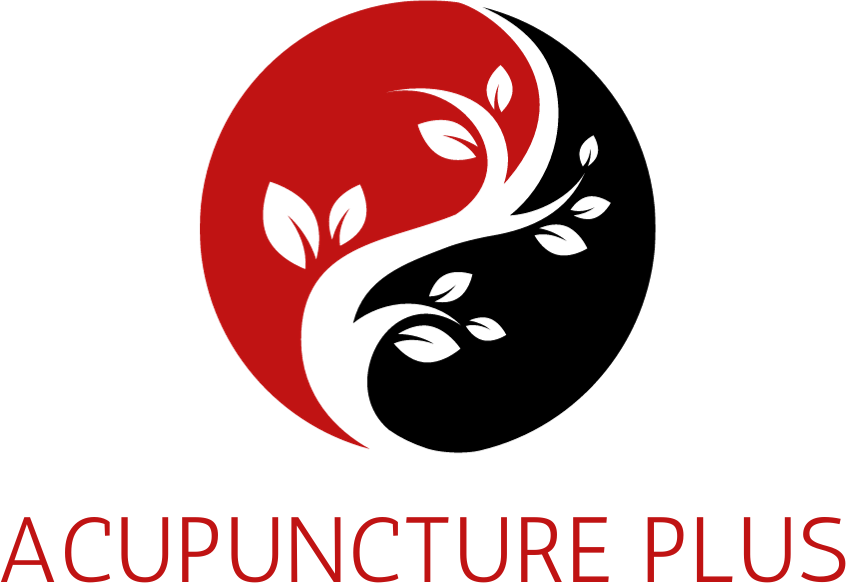Book an appointment
Austin Acupuncture for Insomnia: Transforming Insomnia with Expert Care

Insomnia is a prevalent sleep disorder, affecting approximately 40% of adults. Symptoms of insomnia include difficulty falling asleep, taking more than 30 minutes to fall asleep, or difficulty staying asleep. Insomnia is considered chronic when it happens more than four nights a week and last for at least three weeks.
Insomnia can lead to symptoms like fatigue, tension, and lethargy. Difficulty sleeping can also cause cognitive impairments, such as delayed reactions, distraction, and headaches. In severe cases, insomnia can contribute to mental illnesses like schizophrenia. Prescription medications for insomnia carry many side effects and generally are not recommended for long term use.
Acupuncture is a side-effect free, powerful holistic treatment that can help resolve sleep quality symptoms.
How Does Acupuncture Help You Sleep?
Acupuncture, an ancient Chinese healing practice, is well known for its therapeutic effects in helping treat insomnia and promoting better sleep hygiene–without the side effects of pharmaceutical medications. By expertly placing tiny, hair like needs on certain meridian points of the body, acupuncture helps to naturally restore the balance of Qi (energy) flow. While the exact mechanisms are not fully understood, acupuncture is believed to influence various physiological processes, including the regulation of neurotransmitters and hormones associated with sleep.
Balancing Energy Flow
In traditional Chinese medicine (TCM), the body's vital energy, or Qi, flows through meridians. Disruptions or imbalances in this flow are thought to contribute to health issues, including sleep disturbances. Acupuncture aims to correct these imbalances by stimulating specific points along the meridians. This restoration of energy flow is believed to alleviate stress, anxiety, and tension, which are common culprits of sleep problems.
-
Regulating Neurotransmitters
Acupuncture may influence neurotransmitters such as serotonin and melatonin, both crucial for regulating sleep. Serotonin plays a role in mood and relaxation, while melatonin governs the sleep-wake cycle. Studies suggest that acupuncture may enhance the production of these neurotransmitters, contributing to a more stable and relaxed mental state conducive to restful sleep.
-
Stress Reduction and Cortisol Regulation
Chronic stress can significantly impact sleep quality by elevating cortisol levels. Acupuncture has shown promise in reducing stress and modulating cortisol secretion. By targeting stress points, acupuncture may help the body enter a more relaxed state, facilitating the transition into restorative sleep and breaking the cycle of stress-induced insomnia.
-
Individualized Treatment Approach
One of acupuncture's strengths lies in its individualized approach. Practitioners assess each person's unique constitution, considering factors such as lifestyle, stressors, and overall health condition. This personalized approach allows for a tailored treatment plan that addresses the root causes of Insomnia. As a complementary therapy, acupuncture can be integrated into a holistic approach to sleep health, alongside lifestyle modifications and other evidence-based interventions.
Acupuncture's potential to improve sleep stems from its holistic approach, addressing both physical and mental aspects of well-being. While more research is needed to fully understand the mechanisms, many individuals report positive outcomes in their sleep patterns with regular acupuncture sessions. As with any therapeutic intervention, consulting with a qualified practitioner and incorporating acupuncture into a comprehensive sleep care strategy is advisable.
How Does Acupuncture Work?
Acupuncture, a 3,000-year-old practice in Traditional Chinese Medicine (TCM), is often considered an "alternative" treatment in the United States. Chinese medicine takes a holistic approach, viewing the mind, body, and spirit as an interconnected system. Its goal is to identify the root cause of illness or imbalance and address it. In acupuncture, thin needles are inserted into specific points along meridians, which are pathways where life energy, known as "Qi," flows.
The body is seen as a network, an electrical highway of points and meridians, influenced by both internal and external factors that are constantly changing. Acupuncture taps into this network, redirecting and harmonizing the flow of energy to bring about immediate and lasting change.
Acupuncture is believed to function as a neuromodulator, reducing the brain's perception of sensory signals, such as chronic pain. Through
functional MRI scans, we can observe that acupuncture has a broad impact on various regions of the brain. This widespread influence underscores the significant role of acupuncture in brain function.
What to Expect on Your First Visit
Embarking on your first acupuncture session for Insomnia involves a comprehensive and personalized approach designed to understand your unique health condition. Here's what you can typically expect:
-
Thorough Consultation
Based on the information gathered, the acupuncturist will perform an individualized assessment, which may include examining your tongue, feeling your pulse, and identifying specific acupuncture points relevant to your sleep concerns. This TCM diagnostic process helps create a targeted and personalized treatment plan.
-
Individualized Assessment
We understand your health journey is unique, so we prioritize personalized care. Our acupuncturists take the time to get to know you, your specific health concerns, and your treatment goals. This in-depth understanding allows us to craft individualized treatment plans that address the root causes of your health issues, ensuring that you receive the care you truly need.
-
Discussion of Treatment Plan
Following the assessment, your acupuncturist will discuss the proposed treatment plan with you. This may involve a series of acupuncture sessions, often spaced out over several weeks, to address both immediate sleep concerns and underlying imbalances contributing to disrupted sleep.
-
Acupuncture Session
The actual acupuncture session involves the gentle insertion of thin needles into specific points on your body. These points are chosen based on TCM principles and the individualized assessment. The needles are usually painless, and many people with insomnia find the experience deeply relaxing.
-
Relaxation and Duration
After the needles are inserted, you'll typically rest comfortably for about 20-40 minutes. Many individuals experience a sense of relaxation and calm during this time. Some may even fall asleep during the session, highlighting the potential soothing effects of acupuncture.
-
Follow-Up Recommendations
After the session, your acupuncturist may provide lifestyle recommendations, dietary advice, or self-care practices to support the ongoing benefits of the treatment. These suggestions are often aimed at promoting better sleep hygiene and overall well-being.
-
Regular Follow-Up Sessions
Acupuncture is often most effective with regular sessions. Your acupuncturist will discuss the frequency of follow-up visits based on your response to treatment. It's essential to communicate openly about any changes or improvements in your sleep patterns during these follow-up appointments.
Testimonials
As someone who has been struggling with sleep since high school, two month ago, I decided to give acupuncture a shot. Dr. Wang also prescribed me herbal medicine for my issue. My sleeping has become way better. I know the struggle and the feeling of bad sleeps, for someone who needs help, give him a shot! Dr. Wang has also been responsible and took care of my insurance issue that I had. Good people need to be recognized!
Amanda Z.
Had a visit with Dr Jin for my headaches. She is very professional and sweet. My headache went away almost right after the appointment. It was like magic. Would recommend her for sure.
-Faye
I have struggled with Fibromyalgia for the last 12 years - pain, insomnia, chronic fatigue syndrome, brain fog, etc. I have seen countless doctors, specialists, health practitioners, etc. with minimum symptom relief and no improvement on the root causes. This nightmare has gone on for years. Dr. Guoen Wang has been a god send - EXTREMELY helpful! He actually listened to the issues I was experiencing and confidently put me on a Chinese herbal tea to treat my condition. It has been only 2 weeks and I feel like a new person!! My pain has receded, my energy levels are rising and the brain fog is clearing. I cannot even believe this...and most importantly my condition (not just my symptoms) are improving. I am excited to continue working with Dr. Wang and could not recommend him enough for any health condition.
Evan K.
Embrace restful sleep with acupuncture for insomnia. Start your journey to better sleep today – schedule your acupuncture session with us today and experience the transformative power of holistic healing.
Visit Our Austin Acupuncture Clinic
Address
11851 Jollyville Road, Suite #102, Austin, Texas 78759
Phone
Fax
512-453-5318
info@AustinAcupuncturePlus.com
